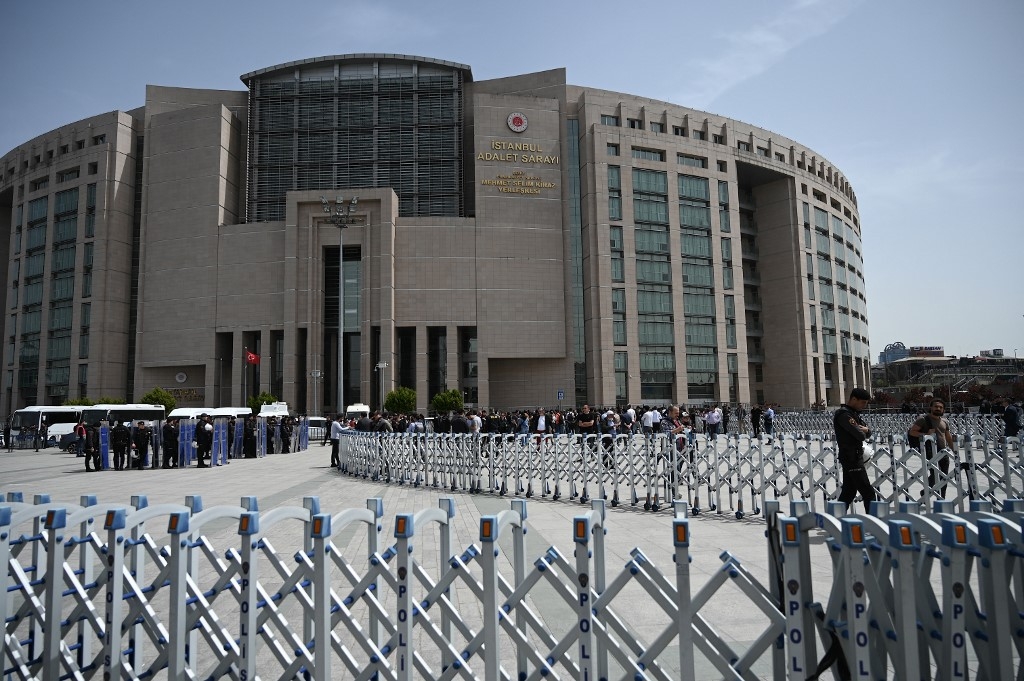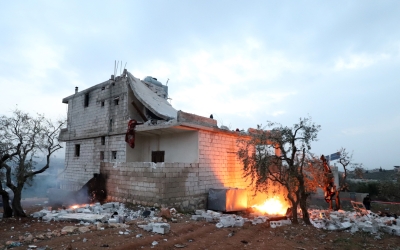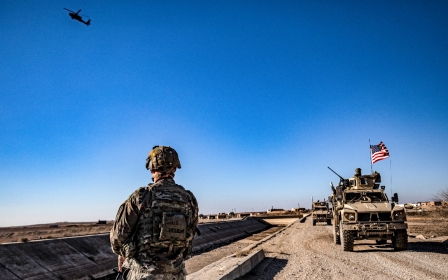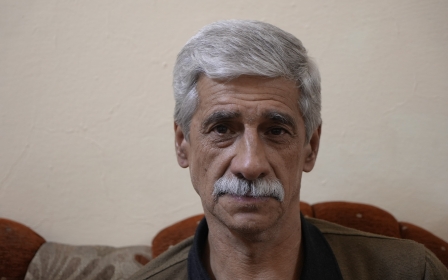Turkey: Suspected Islamic State leader tells prosecutors he never fought in battle

The suspected leader of the Islamic State (IS) said he was never involved in fighting and was selected for the role against his wishes, a Turkish indictment obtained by Middle East Eye showed.
Bashar Khattab Ghazal al-Sumaidai, who was arrested in Istanbul in September, told Turkish prosecutors that he had never fired a bullet against any of the group's many enemies.
He denied ever being a part of the IS armed forces or sentencing anyone to death in his role as justice minister.
His ascension to the group's leadership is believed to have happened after US special forces killed the former leader Abu Ibrahim al-Hashimi al-Qurayshi in Syria in February.
A month later, the group named Abu Hasan al-Hashemi al-Qurashi as his successor, a name which is thought not to be real. Some believe the leader to be Juma Awad al-Badri.
However, the Turkish indictment dated 10 October, based on an IS insider testimony and other information, says al-Sumaidai is most likely the man known as al-Qurashi, the group's third self-proclaimed caliph.
Al-Sumaidai told prosecutors that he accepted the possibility of becoming the group's new leader due to his popularity among fighters and since very few senior ranking officials were left in the group.
But he said the declaration was made against his wishes.
While IS no longer controls the vast territory it did in Syria and Iraq during its peak between 2014 and 2018, the group has remained a security threat throughout the region, particularly in Iraq, Syria and Afghanistan.
IS history
In the indictment, al-Sumaidai, who is also known by his nickname Abu Zeyd, revealed details of his personal life and role in IS.
He was born in 1975 in Mosul, Iraq and finished a university degree in electricity while studying Islamic law for over 20 years in a mosque in the city.
His father was a non-commissioned military officer and his mother was a housewife. He had not seen them since 2015.
Up until he joined IS in 2012, he had worked as a teacher in religious schools in Mosul.
He joined the group after meeting Abu Muslim Al-Turkmani, who was a senior leader in the organisation at the time.
Al-Sumaidai said he rose through the ranks after becoming a confidante of Abdul Nasser Qardash, who was an influential figure among the IS leadership, with close ties to its first self-proclaimed caliph Abu Bakr al-Baghdadi.
In April 2014, he was appointed as the education minister by al-Baghdadi as the group seized control of Mosul.
Later that year, he moved to Syria's Raqqa and was reassigned as the justice minister and the chair of an appellate court.
He left Raqqa in 2017 as the group began losing control of most of its territory to the US-led coalition.
Middle East Eye delivers independent and unrivalled coverage and analysis of the Middle East, North Africa and beyond. To learn more about republishing this content and the associated fees, please fill out this form. More about MEE can be found here.





